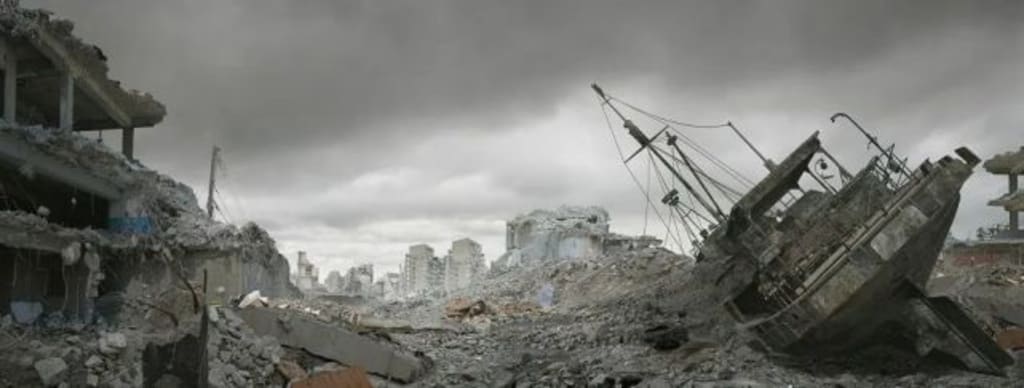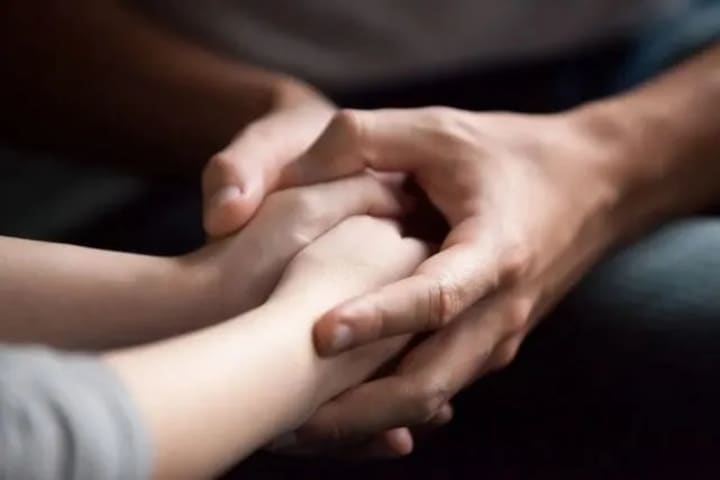
Epidemics, floods, earthquakes, and disasters always seem to arrive unawares ......
We can't influence natural disasters, but we can decide our behavior. If you know more about earthquakes, know how to save yourself during the earthquake, and how to protect yourself after the earthquake ...... may be able to save your life at critical times.
1. toad on the shore, snake out of the hole ...... is to have an earthquake?
Usually, before an earthquake occurs, there will be toads on shore, snakes out of their holes, fish die in large numbers, ants move, animals are emotionally irritable, plants bloom abnormally, etc. This is related to the fact that the organs of some plants and animals have not yet degenerated.
Before an earthquake, there will be various abnormal changes in the earth's crust, such as magnetic field, temperature, chemical gases, etc. Some "sensitive" plants and animals will feel such changes.
The abnormal reaction of plants and animals may or may not be a precursor to an earthquake. Zhou Fulin, an academician of the Chinese Academy of Engineering, said in a previous interview with the media that volcanic eruptions, geomagnetic changes, solar cycles, etc., can trigger abnormal reactions in plants and animals.
Therefore, anomalous plant and animal reactions can only be used as one of the information channels for earthquake prevention work; it is a method used in the period of underdeveloped technology and is not reliable and can only be used as a reference [1].
2. So can earthquakes be predicted?
Let's start with the good news about the recent progress in the frontier of clinical research on the new crown vaccine: the results of a phase 1/2 clinical trial of an inactivated vaccine showed that all subjects who received the vaccine developed antibodies capable of neutralizing the virus.
Likewise, earthquake prediction is at the forefront of earth science and remains a difficult worldwide challenge to break through.
In general, the level of forecasting is still very low, and only a very small number of earthquakes can be predicted, and current earthquake forecasting is still based on a limited empirical basis [2].

3. What should I do when an earthquake occurs?
When an earthquake occurs, there is a time difference between the arrival of the longitudinal and transverse waves within a certain epicenter distance. The longitudinal waves reach the surface first, and people will feel the up and down bumps first, and then feel the left and right shaking when the transverse waves arrive.
This early arrival of the longitudinal waves can be considered an earthquake warning signal. If reasonable earthquake avoidance methods are taken before the arrival of the more destructive transverse waves within the short warning time, more injuries can be avoided [2].
(i) If indoors [3].
Squatting down (DROP)
In the event of a sudden earthquake, you should actively squat down with your hands and knees on the ground to lower your body's center of gravity.
Protect (COVER)
Protect your head and neck with your hands or school bag, etc. to avoid being hit by falling objects.
Hide at the root of a load-bearing wall or corner, or choose sturdy, low furniture to squat next to.
Be careful to keep your distance from windows, exterior doors, glass and any objects that may fall. If possible, wear a safety helmet.
Grasp (HOLD ON)
Hold onto a solid object nearby until the shaking stops.
Most earthquake injuries occur while running. Do not try to run out of a building while it is still shaking under your feet. Do not use elevators.
(ii) If outdoors.
Crouch in place and move to an open area if it is safe to do so; protect your head and neck and hold on to objects.
The biggest danger outdoors is buildings, especially entrances and exits and exterior walls. Do not hide around tall buildings, fences, or large trees.
Avoid billboards, street lights, and power lines.
If the river is suddenly turbid and the water level rises, it is mostly a precursor to earthquake-induced flash floods or mudslides, so you should immediately run to the slope perpendicular to the river's course.
(iii) If you are driving.
Park as soon as possible at a safe place on the side of the road, turn on the emergency lights and stay in the car until the earthquake stops.
Avoid parking near buildings, trees, overpasses, and power lines.
(d) If trapped.
(a) Try to free your hands, wipe off the dust and mud at your mouth and nose, remove the heavy objects pressing on your chest and keep your breathing open.
If the environment is relatively closed, to slow oxygen consumption and preserve physical strength, do not shout, you can choose to hit the metal objects regularly to send out a distress signal.
5. What must I not do during an earthquake?
Do not walk or run outside or in the room during the shaking. The strong shaking will cause you to fall, and you may also be victimized due to falling objects.
Do not stand in the doorway. Doorways are not sturdy, but instead, there is a risk of injury from falling objects, which is the most common cause of injury in earthquakes [3].
6. What should I do after an earthquake?
Escape. After the earthquake has stopped, judge your surroundings and make sure it is safe before leaving the building, taking care to avoid hazards.
Pay attention to aftershocks. The shock waves of aftershocks are usually less powerful than those of the main quake, but they may also cause injuries and may last longer.
Prevent fires. Fires are the most common secondary hazard of earthquakes. If possible, take care to check for gas leaks and extinguish sporadic fires [3].
7. Is there anything else I should be aware of?
Good hygiene habits should be practiced [4].
Such as proper hand washing.
Safe food preparation practices, such as drinking bottled water, boiling water, or chlorinated treated water.
If you have a fever, you should be seen as early as possible.
8. After the earthquake, life goes on
After the disaster, the reconstruction of houses as well as basic settings can be carried out drastically, but the psychological reconstruction is slow.
Usually, some people in the disaster area will have a psychological crisis after the earthquake, and the affected people tend to be pessimistic and depressed. It has been shown that the psychological trauma caused by the 1976 earthquake in Tangshan, Hebei, to the victims affected their physical and mental health for a long time, and the proportion of people suffering from neurosis, anxiety disorders, and phobias was three to five times higher than the normal population [5].
It is advisable for earthquake victims to receive systematic psychological counseling and guidance after the disaster so that the dead can rest in peace, the living can be strong, and life can go on.
About the Creator
Ke Qi Xi
eggars cannot be choosers.






Comments
There are no comments for this story
Be the first to respond and start the conversation.